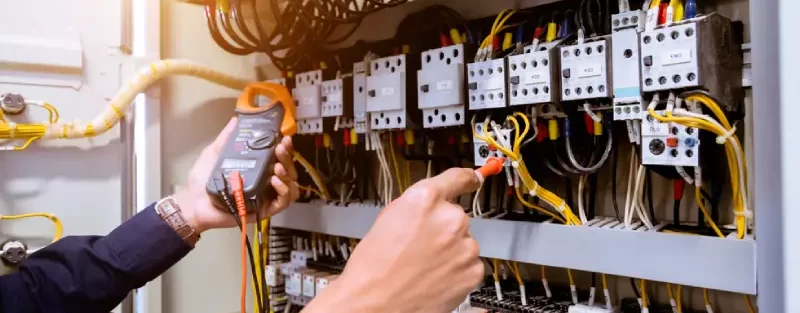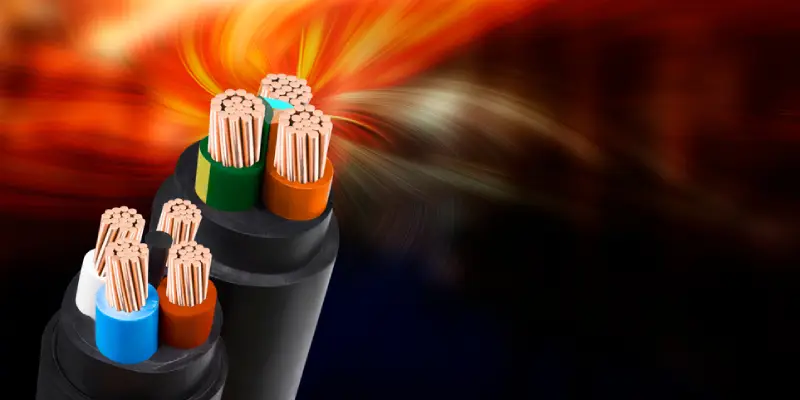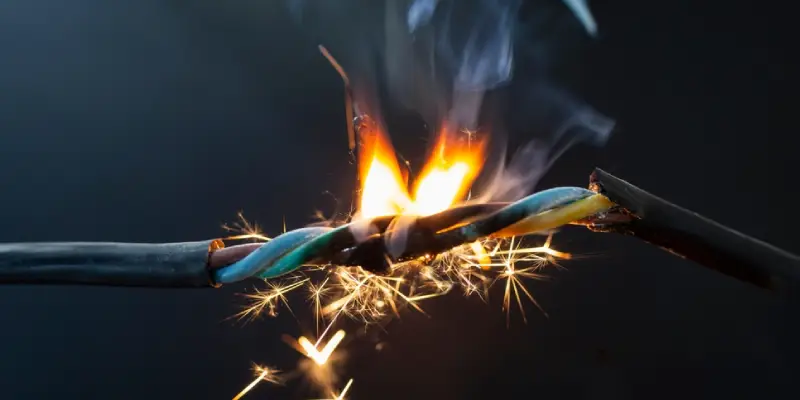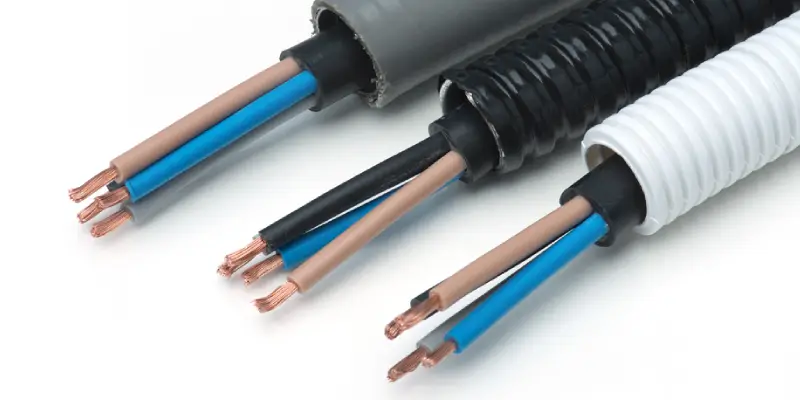


You’re settling down for a cozy evening at home, the lights are dim, and your favorite show is playing on the TV. Everything seems perfect until you notice a faint, unsettling smell – something like burnt plastic. Your heart races as you realize it’s coming from the wall. Is it a short circuit? An electrical fire waiting to happen?
Electrical wiring is an invisible but vital part of our homes, running through the walls, ceilings, and floors to power everything from our lights to our appliances. While we rely on these wires to keep our lives running smoothly, they pose marked safety risks if improperly maintained.
Electric shocks, short circuits, and electrical fires are not just the stuff of nightmares; they are genuine hazards that can cause severe damage and disrupt your life. That’s why ensuring the safety of your home’s wiring isn’t just about ticking off a checklist – it’s about protecting your family and your home from potential danger.
So, how can you keep your home safe and your electrical system in top shape? Let’s find out!

Before diving into specific safety measures, it’s helpful to have a basic understanding of how wiring works. Electrical wiring is a network of wires that carry electricity from the power source to different outlets and appliances in your home. Most residential wiring uses copper or aluminum wires coated with an insulating material, which helps prevent the flow of electricity from coming into direct contact with walls or floors.
However, wiring systems can deteriorate over time, leading to exposed wires or faulty connections, which can become hazardous. That’s why regular inspection and maintenance are crucial to ensuring safety.
Proper installation is the foundation of wire safety. Whether building a new home or renovating an old one, hiring a licensed electrician for wiring tasks is vital. A professional will ensure wires are installed according to safety codes and regulations. They will know how to properly connect wires, use the correct materials, and prevent potential hazards like overloading circuits or improper grounding.

Understanding common wire safety hazards in residential areas is crucial for maintaining a safe home environment. Here’s a rundown of some typical electrical hazards you might encounter:
By following the guidelines below, you can effectively address wire safety concerns and ensure your home remains a safe and secure environment.
Wires can degrade due to age, weather, or environmental factors like moisture and pests. Schedule regular electrical inspections with a qualified electrician to catch issues early, such as frayed wires or outdated systems. This is especially crucial for older homes, where outdated wiring might not meet current safety standards. Look for signs like flickering lights or frequent breaker trips, which could indicate problems needing immediate attention.
Overloading circuits happen when too many devices are plugged into a single outlet, causing overheating. Distribute appliances across different outlets and use surge protectors to prevent damage from electrical surges. Avoid running multiple high-wattage appliances on the same circuit to prevent overloads.
Use high-quality, safety-approved materials and tools for your electrical needs. Avoid damaged cords, and never run them under rugs or furniture. Ensure appliances match your home’s wiring capacity; for instance, don’t use a 20-amp appliance on a 15-amp circuit. Consult an electrician if doubtful.

Electrical conduit pipes are safeguarding tubes that protect wiring from physical harm, moisture, and various environmental risks. Installing conduit pipes, especially in areas where wires are exposed or run through walls and ceilings, can enhance the durability of your wiring system.
If you’re wondering where to get quality conduit pipes or channel patti, Adamjee Dura Built offers many non-pressure conduit pipes suitable for many applications. Their electrical conduit pipes, produced strictly to BS 6099 standards, are designed to protect electrical wiring or cables in power systems.
Check out Adamjee Dura Built’s top-notch electrical conduit pipes!
If you have children, use tamper-resistant outlets or outlet covers to prevent accidents. Tamper-resistant outlets block foreign objects from being inserted unless both plug prongs are used, making them safer for homes with young kids.
Teach everyone in your home, including children, the basics of electrical safety. Instruct them not to touch outlets or appliances with wet hands, avoid using damaged cords, and never pull cords to unplug them. Ensure they know how to respond in an electrical emergency, such as turning off the main power and using a fire extinguisher.
Have a fire extinguisher rated for electrical fires and know where your main power switch is. Keep emergency contact numbers, such as a local electrician, readily available. For major issues, call a professional rather than attempting repairs yourself.
Consider upgrading outdated wiring systems, such as knob-and-tube or aluminum wiring, to modern standards. New wiring is safer and can better handle current electrical demands. While it requires an investment, the benefits of improved safety and increased home value make it worthwhile.
Wire safety is essential for protecting your home and family from electrical hazards. You can significantly reduce the risks associated with residential wiring by ensuring proper installation, regular inspections, using electrical conduit pipes, and educating your household members. Remember, prevention is always better than cure when it comes to electrical safety. Stay alert and proactive in addressing wire safety concerns in your home, and don’t hesitate to call in a professional when needed.
Is your home’s wiring safe and up-to-date? Act today to safeguard your home and family!

Adamjee Dura Built (Private) Limited was incorporated in 1984. We are the market front-runner due to our winning edge in quality control, product range, prompt and efficient service.
Since the 80s, we have been manufacturing quality electrical trunking, uPVC pipe, flexible pipe & fittings, uPVC electrical conduits, and have diversified to capture the water pipe market with DuraSDR, Dura Sch40, DuraTubewell, DuraPE and DuraFitting.

